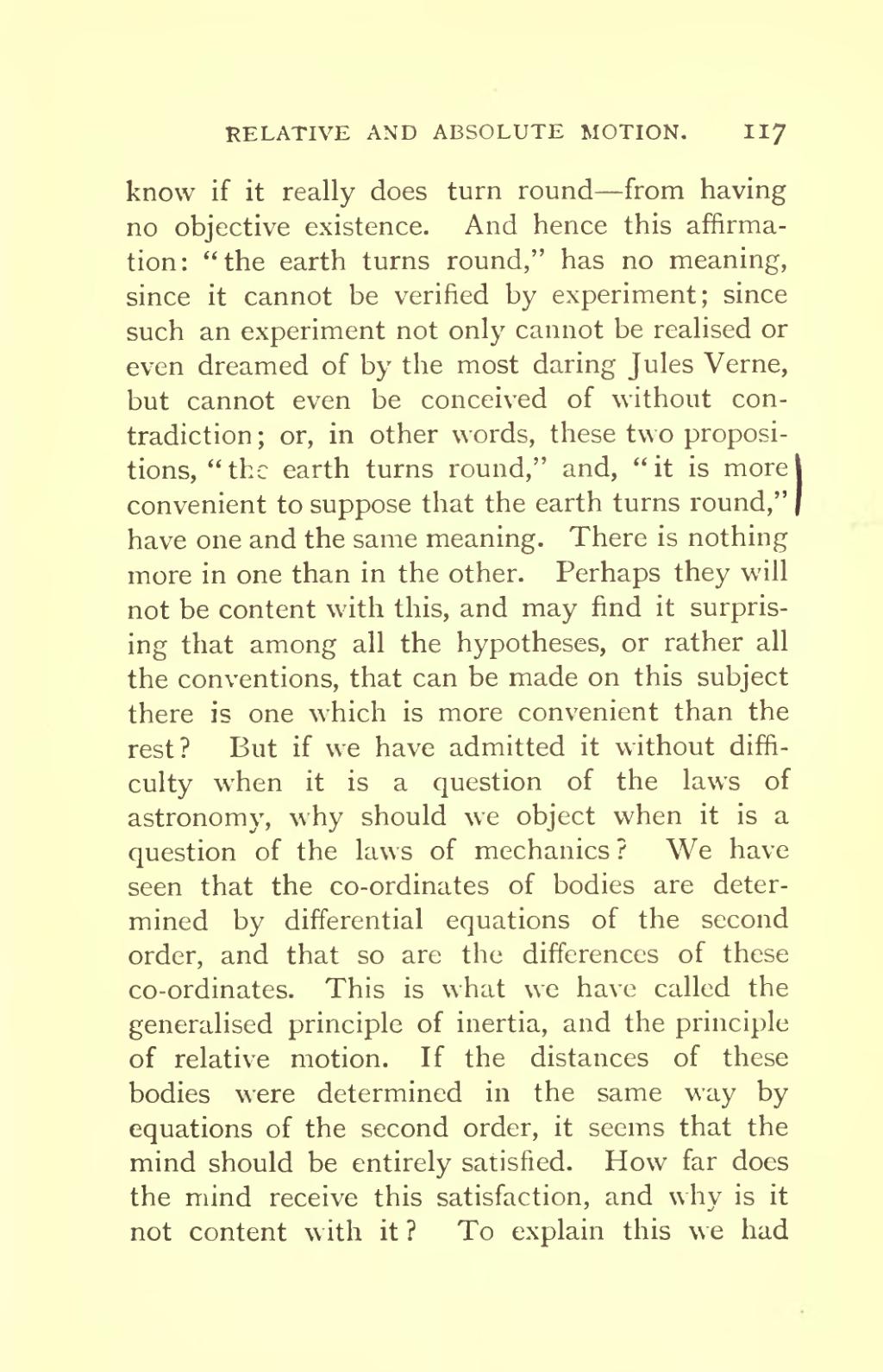know if it really does turn round—from having no objective existence. And hence this affirmation: "the earth turns round," has no meaning, since it cannot be verified by experiment; since such an experiment not only cannot be realised or even dreamed of by the most daring Jules Verne, but cannot even be conceived of without contradiction; or, in other words, these two propositions, "the earth turns round," and, "it is more convenient to suppose that the earth turns round," have one and the same meaning. There is nothing more in one than in the other. Perhaps they will not be content with this, and may find it surprising that among all the hypotheses, or rather all the conventions, that can be made on this subject there is one which is more convenient than the rest? But if we have admitted it without difficulty when it is a question of the laws of astronomy, why should we object when it is a question of the laws of mechanics? We have seen that the co-ordinates of bodies are determined by differential equations of the second order, and that so are the differences of these co-ordinates. This is what we have called the generalised principle of inertia, and the principle of relative motion. If the distances of these bodies were determined in the same way by equations of the second order, it seems that the mind should be entirely satisfied. How far does the mind receive this satisfaction, and why is it not content with it? To explain this we had
Page:ScienceAndHypothesis1905.djvu/149
This page has been validated.
RELATIVE AND ABSOLUTE MOTION.
117
